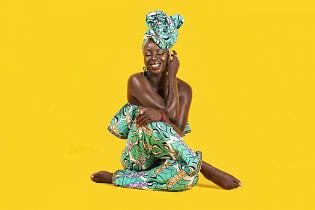Black Canadian dance artists share experiences of racism in TESSEL
Last year’s police murder of Minneapolis resident George Floyd prompted tremendous soul-searching within the Canadian arts community.
But even as expressions of good intentions were being widely articulated, Toronto dancer and choreographer Esie Mensah felt that more needed to be done to shine a light on racism within her art form.
“A friend of mine had said to me, ‘It feels like people are finding out that racism existed for the very first time,’ ” Mensah said. “You know, we would joke and we would kid about it, but we knew that there was still a lot of truth in that.”
So last January, Mensah decided to bring together 14 Black dancemakers from across Canada, including herself, for seven hours of frank conversation on race.
The result is a short film, TESSEL, which documents the experiences of Black dance artists through judicious editing of voice and movement.
Fall For Dance North and Harbourfront Centre are presenting the virtual premiere for free across Canada on June 1, a year after Blackout Tuesday. That’s when screens went dark and businesses ceased activities for eight minutes and 46 seconds last June in memory of Floyd.
“This has never happened in Canadian dance history – that so many presenters have come on board for a project like this,” Mensah said.
She emphasized the importance of people recognizing that the seeds of this project came from trauma. And she noted that the audience will not know which dancer is speaking at any given time in the film, offering each artist full freedom to express themselves.
“Everyone says something that’s needed,” she stated. “Everybody says something of value.”
Participants include Toronto’s Ravyn Wngz, Natasha Powell and Lua Shayenne, Montreal’s Alexandra Landé and Vancouver’s Livona Ellis, Kevin Fraser and Gabrielle Martin. The music was overseen by Alessandro Juliani and Meg Roe, who was also in charge of sound design.
“There’s a lot of truth and honesty, but also I think [there’s] an idea of a way forward in terms of healing,” Mensah said.
For those wondering about the title, tesselations are flat geometric patterns on tiles that include more than one shape and have no gaps. By calling the film TESSEL, Mensah hopes to help people understand the enduring pattern of racism and recognize how to interrupt it by creating a new foundation.
“I did not want to give a film at the space where everybody else would be comfortable,” she said. “I needed to have the conversation in the space where we were at as artists. And for people to meet us where we are – and not necessarily us meeting other individuals where they are at.”



